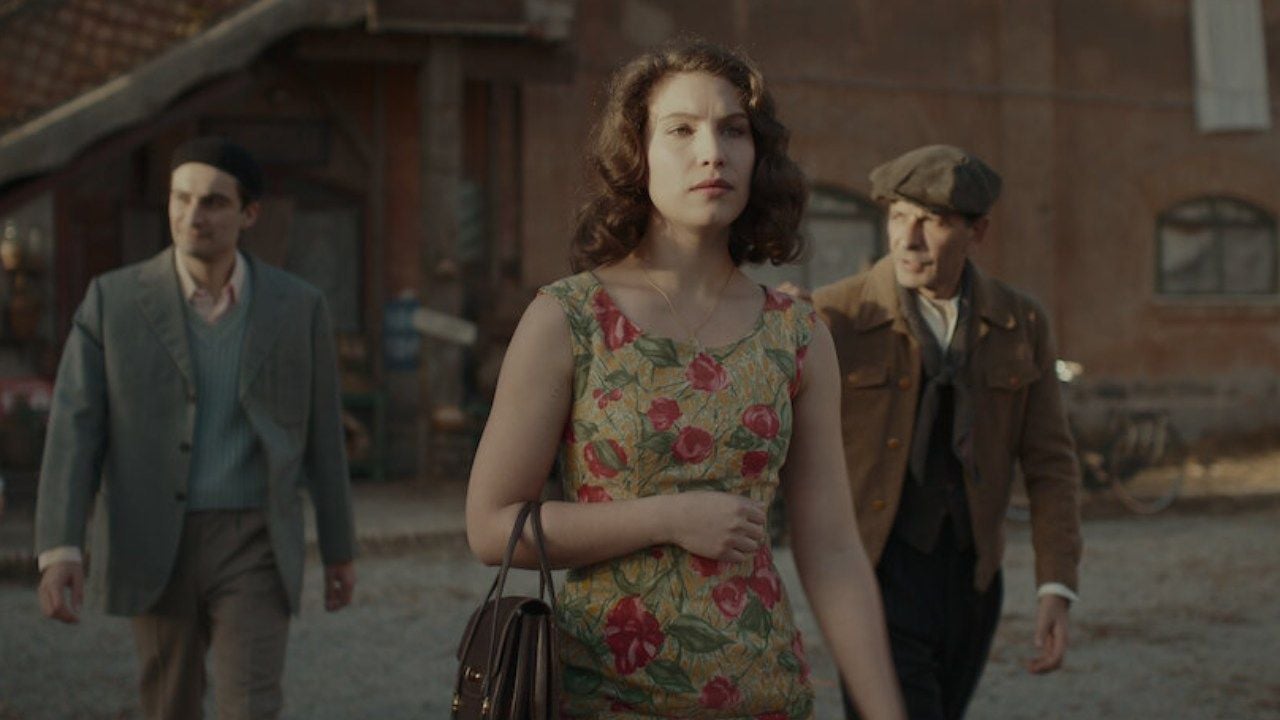Rodrigo de Oliveira’s film resumes the uncertainties experienced in the 1980s in the face of the unknown and fatal enemy
The first soldiersin Rodrigo de Oliveira, screening in the cinema, starts with a fake movie. I mean, a movie within a movie. In this, we see a lone fighter, lost in the jungle, starving to death and saying he is willing to cut and eat a part of his body to survive. It’s kind of a metaphor for what’s to come. This distant mention of Macunaíma in his encounter with Curupira gives a misleading tone to this first sequence.
After a fantastic start, we enter the most realistic narrative in which young Suzano (Johnny Massaro) returns from a season in France and reunites with his sister (Clara Choveaux), a nurse. We are in 1983 and in Vitória, Espírito Santo.
Suzano feels something strange happening in her body. He joins Rose (Renata Carvalho) and Humberto (Vitor Camilo), also sick, victims of this invader, who does not even have a definite name, of which little is known, except that it is fatal. They attempt a cure (physical and spiritual) in the environment removed from a place. And, if the suffering is excessive, they have a strategic escape from the path of pain.
It is possible that the viewer feels a certain strangeness in the narrative – in the positive sense, of the “strange” Freudian (Unheimlich), which strikes us, decentralizes us and serves as a stimulus to the imagination. This shift in narrative preserves the film from what would only be the suffering trajectory of doomed beings and adds other layers. We feel that there is something else there, pulsing beneath the surface.
Right, the film takes into account the emotional weight that surrounds the characters in their confrontation with the expectation of death, in an environment that is prejudiced and not inclined to solidarity. However, in the midst of pain, there is the search for joy and celebration. Life is confronted with death, and from this clash arises the feeling of a displacement that is as uncomfortable as it is necessary. Only in this way can we advance in knowledge and empathy. To progress, you need to open your eyes and try to see things and people in a less conventional way.
This seemed to me to be the main meaning of the film, as it seeks the value of life to its limit, avoiding both guilt and self-pity. Living is not a joke, as expressed by Mascaro, Choveaux and Renata Carvalho. This film of feelings, very well thought out in its dialogues, conquers us and takes us to his side – in a fluid but decisive way.
In Ouro Preto, where the film screened at the 17th Cine OP, director Rodrigo de Oliveira said his intention was to make a film that would break with punitive viewing and blame HIV carriers. In times of moral ascension, this kind of gaze is more than welcome.
Source: Terra
Emily Jhon is a product and service reviewer at Gossipify, known for her honest evaluations and thorough analysis. With a background in marketing and consumer research, she offers valuable insights to readers. She has been writing for Gossipify for several years and has a degree in Marketing and Consumer Research from the University of Oxford.





